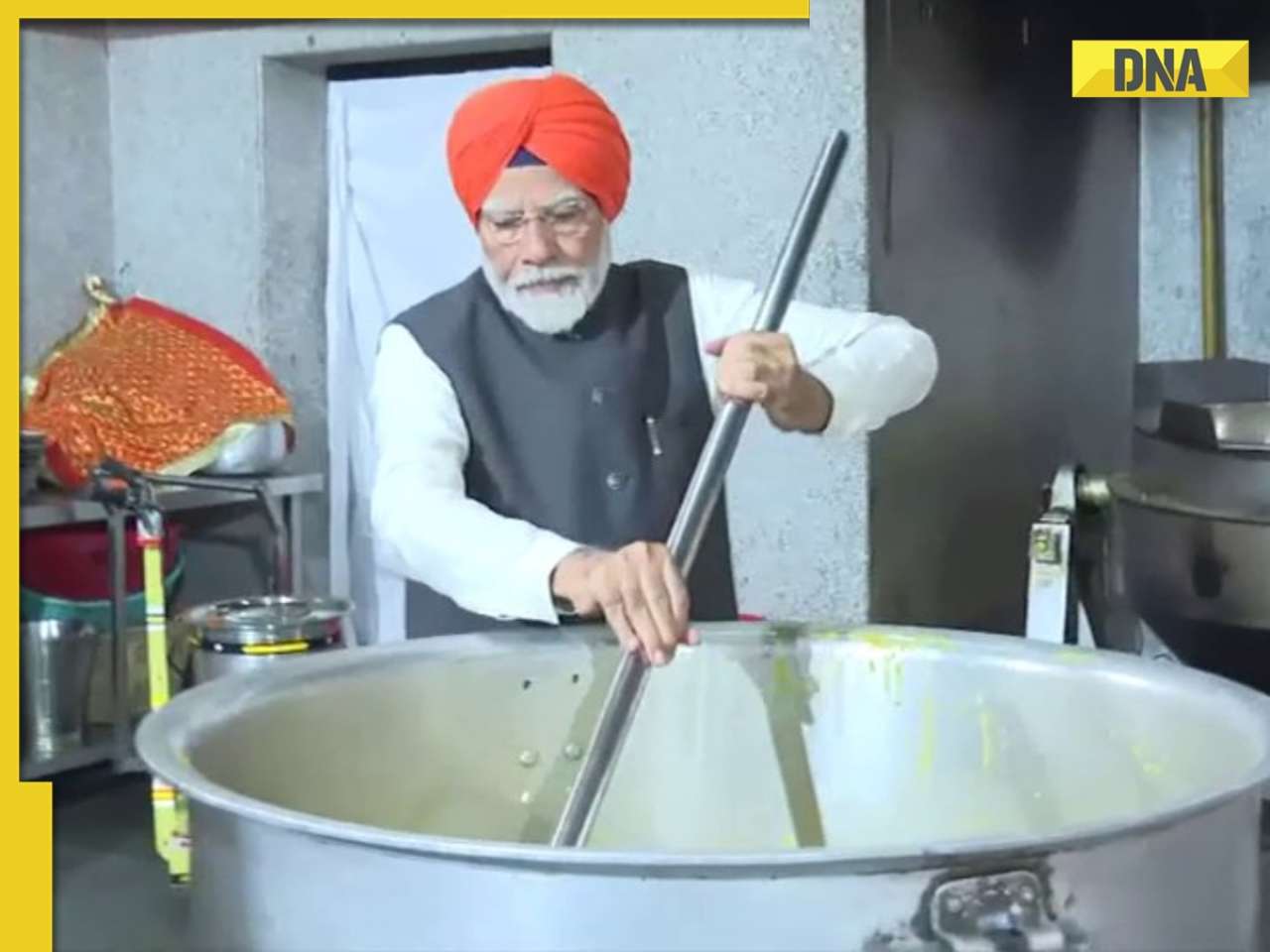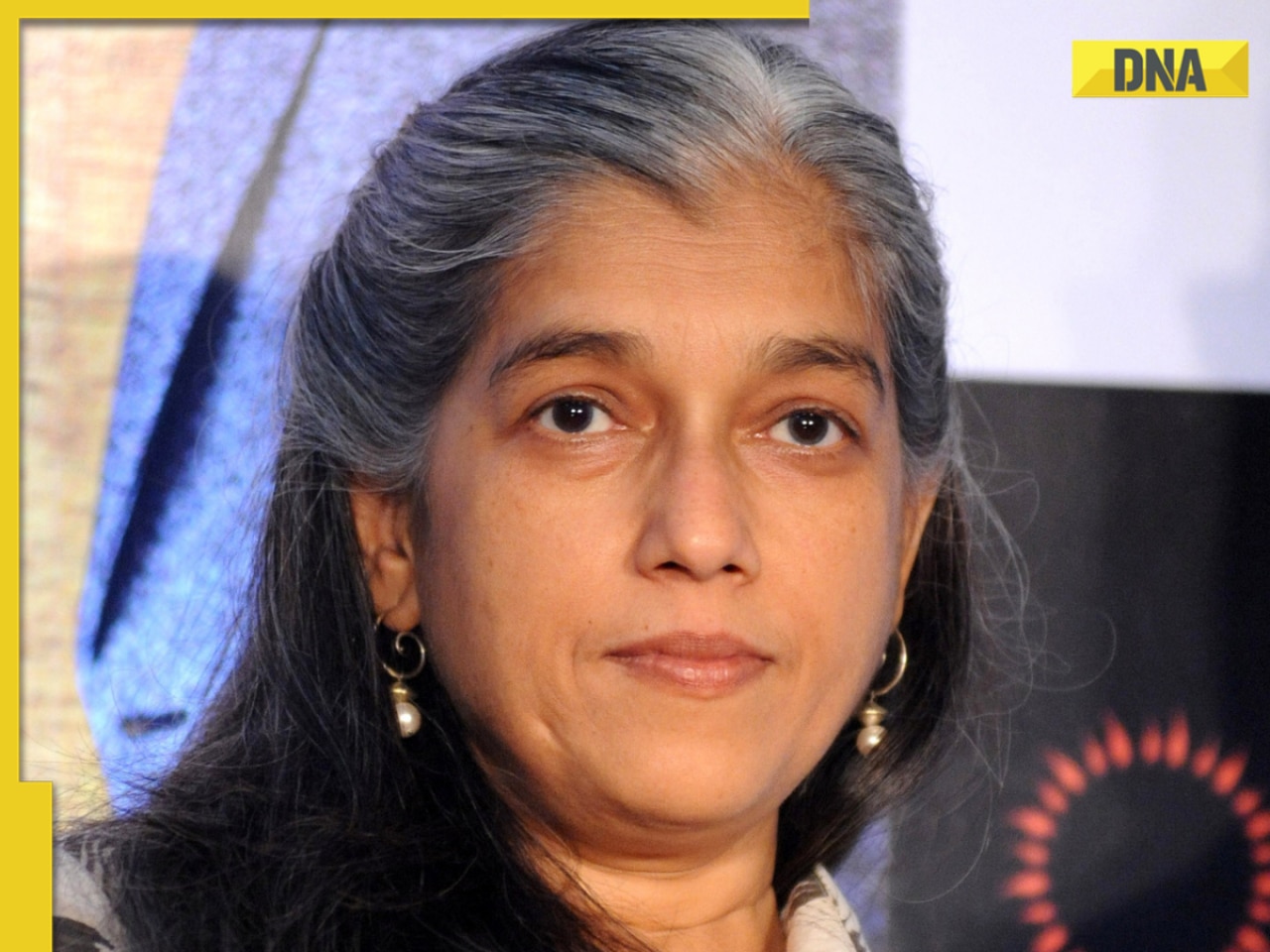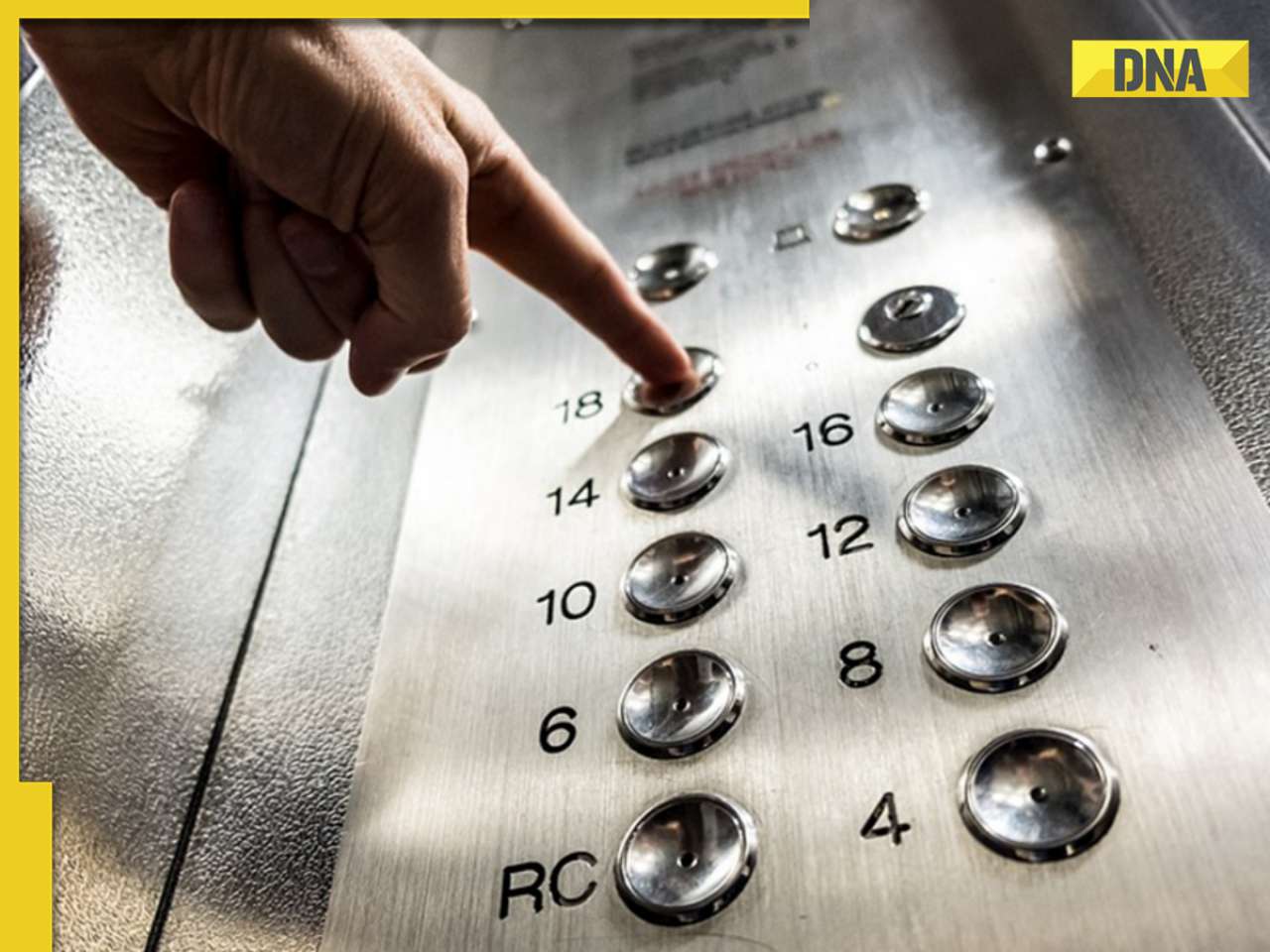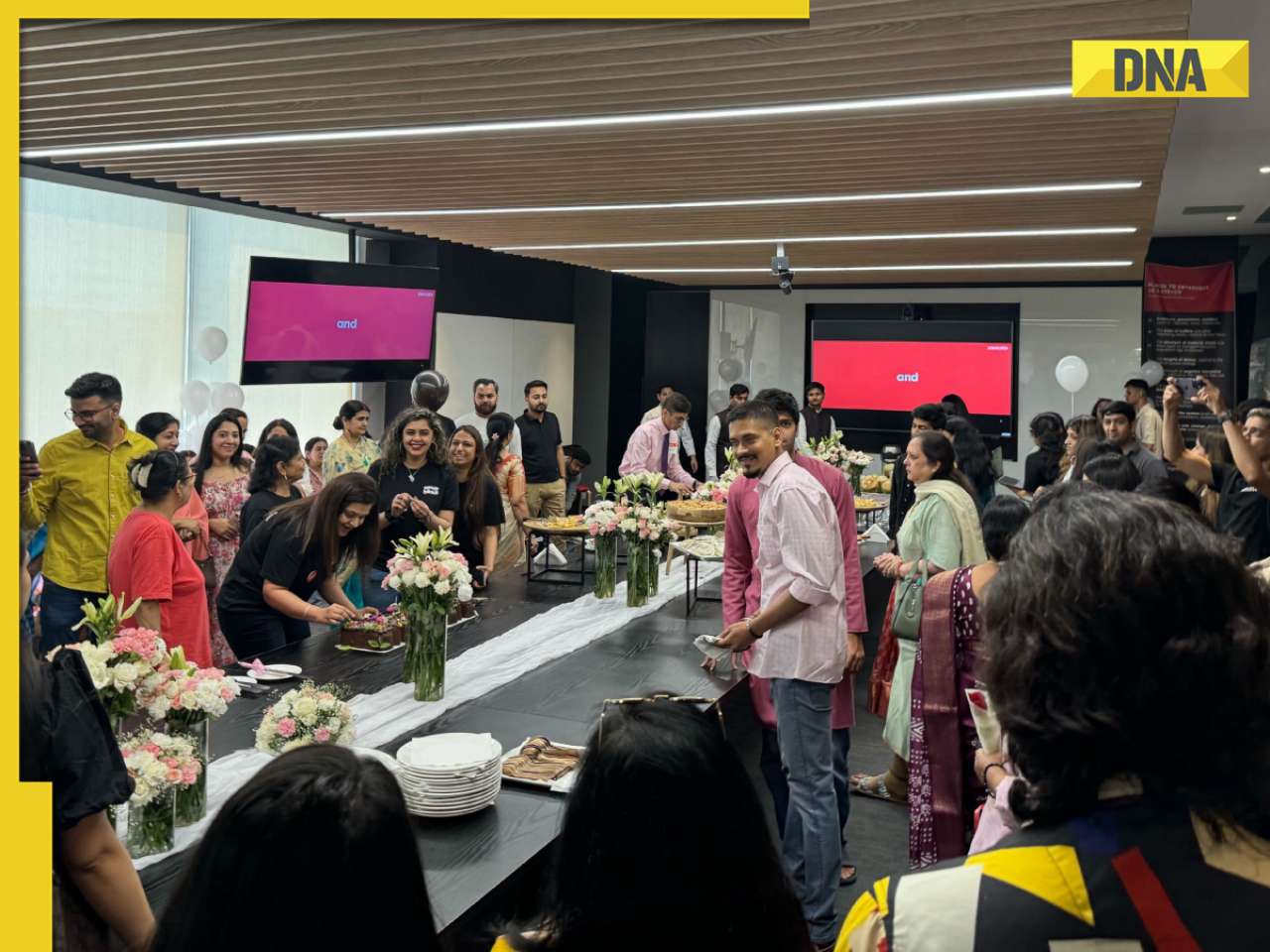An Indian origin woman, who along with her millionaire husband was found guilty of keeping two Indonesian housekeepers as virtual slaves in their mansion.
NEW YORK: An Indian origin woman, who along with her millionaire husband was found guilty of keeping two Indonesian housekeepers as virtual slaves in their mansion here, has been sentenced to 11 years in jail - a punishment the Indian American community has found too harsh.
Varsha Sabhnani, 46, was sentenced on Thursday in the US District Court in Central Islip, Long Island. In addition to the prison term, she will serve three years probation and pay a fine of $25,000.
She was convicted along with her husband, Mahendra Sabhnani, in December 2007 on 12 counts that included forced labour, conspiracy, involuntary servitude and harbouring aliens.
Mahendra, 52, was scheduled to be sentenced Friday, and was expected to get a more lenient sentence for letting the maids at their Muttontown mansion be ill-treated by his wife.
The family-owned Eternal Love Parfums Corp ran a worldwide perfume business.
The Indian American community, which has followed the case with dismay and disbelief, is not too happy with the jail term slapped on Varsha.
Bharat Jotwani, a friend of the Sabhnanis who was in the court for Varsha's sentencing, told IANS: "The family is very disappointed and upset with the harsh sentence. Eleven years is a long time."
Jotwani, who organises mega entertainment events such as the forthcoming 'Unforgettable' Bachchans show in New York and New Jersey, believes the judge and jury were influenced by the media blitz in the case. The couple were tax-paying, model citizens, he said.
For Mahendra, he expected a jail term of no more than 2-3 years.
Naresh M. Gehi, a prominent lawyer, also commented that the punishment in the Sabhnanis' case has been more than they deserved.
Mohini Mittal, a long-time resident in a township near Muttontown, said: "I cannot believe that so much went on for so long in the Sabhnani residence and the neighbours didn't get to hear anything."
Mittal said if it was not a trumped up case, then the guilty should be given a just punishment. Turning philosophical, the follower of Radhasoami faith said: "We come from a country of spirituality and humanity and we should consider other human beings as brothers and sisters and treat them with great love, respect and dignity."
The victims, identified as Samirah and Enung, were apparently not treated humanely. The had testified that they were beaten with brooms and umbrellas, slashed with knives, and forced to take freezing showers as punishment for crimes like taking leftovers from trash cans because they were hungry.
Judge Arthur Spatt called the testimony "eye-opening, to say the least - that things like that go on in our country".
Prosecutors contended the accusations amounted to a "modern-day slavery" case. They said the maids were subjected to "punishment that escalated into a cruel form of torture", which ended in May 2007, when one of the women fled and wearing nothing but rags came to the attention of workers at a neighbourhood restaurant who called the police.
One of the women arrived in the Sabhnanis' home in 2002, the second in 2005. Their families in Indonesia were paid about $100 a month each. No cash was given to the maids.
The judge postponed a decision on the amount of back wages owed by the couple to the women. Prosecutors suggested the women were due more than $1.1 million, while defence attorneys said the figure should be much lower.
The defence, which intends to appeal, contended the two women concocted the story as a way of escaping the house for more lucrative opportunities. They also argued the housekeepers practised witchcraft and may have abused themselves as part of a self-mutilation ritual.
The Sabhnanis also face fines and could be forced to forfeit their home, which is valued at almost $2 million.
Sabhnani, from Hyderabad, had married Varsha, from Indonesia, in 1981 and soon after they came to the US. They have three daughters and one son.
Their eldest daughter, Pooja, 22, told the New York Times that that she was reconciled to prison terms for her parents, adding: "We're trying to prepare to take hold of the business ourselves."
![submenu-img]() Ramesh Awasthi: Kanpur's 'Karma Yogi' - Know inspirational journey of 'common man' devoted for society
Ramesh Awasthi: Kanpur's 'Karma Yogi' - Know inspirational journey of 'common man' devoted for society![submenu-img]() Tovino Thomas accused of stopping his film Vazhakku's release by director Sanal Kumar Sasidharan: 'The agenda of...'
Tovino Thomas accused of stopping his film Vazhakku's release by director Sanal Kumar Sasidharan: 'The agenda of...'![submenu-img]() PM Modi wears turban, serves langar at Gurudwara Patna Sahib in Bihar, watch
PM Modi wears turban, serves langar at Gurudwara Patna Sahib in Bihar, watch![submenu-img]() Anil Ambani’s debt-ridden Reliance’s ‘buyer’ now waits for RBI nod, wants Rs 80000000000…
Anil Ambani’s debt-ridden Reliance’s ‘buyer’ now waits for RBI nod, wants Rs 80000000000…![submenu-img]() Man in bizarre jeans dances to Tinku Jiya in crowded metro, viral video makes internet furious
Man in bizarre jeans dances to Tinku Jiya in crowded metro, viral video makes internet furious![submenu-img]() Maharashtra Board HSC, SSC Results 2024: MSBSHSE class 10, 12 results soon at mahresult.nic.in, latest update here
Maharashtra Board HSC, SSC Results 2024: MSBSHSE class 10, 12 results soon at mahresult.nic.in, latest update here![submenu-img]() Meet IIT-JEE topper who passed JEE Advanced with AIR 1, decided to drop out of IIT due to…
Meet IIT-JEE topper who passed JEE Advanced with AIR 1, decided to drop out of IIT due to…![submenu-img]() Meet IPS Idashisha Nongrang, who became Meghalaya's first woman DGP
Meet IPS Idashisha Nongrang, who became Meghalaya's first woman DGP![submenu-img]() CBSE Results 2024: CBSE Class 10, 12 results date awaited, check latest update here
CBSE Results 2024: CBSE Class 10, 12 results date awaited, check latest update here![submenu-img]() Meet man, who was denied admission in IIT due to blindness, inspiration behind Rajkummar Rao’s film, now owns...
Meet man, who was denied admission in IIT due to blindness, inspiration behind Rajkummar Rao’s film, now owns...![submenu-img]() DNA Verified: Is CAA an anti-Muslim law? Centre terms news report as 'misleading'
DNA Verified: Is CAA an anti-Muslim law? Centre terms news report as 'misleading'![submenu-img]() DNA Verified: Lok Sabha Elections 2024 to be held on April 19? Know truth behind viral message
DNA Verified: Lok Sabha Elections 2024 to be held on April 19? Know truth behind viral message![submenu-img]() DNA Verified: Modi govt giving students free laptops under 'One Student One Laptop' scheme? Know truth here
DNA Verified: Modi govt giving students free laptops under 'One Student One Laptop' scheme? Know truth here![submenu-img]() DNA Verified: Shah Rukh Khan denies reports of his role in release of India's naval officers from Qatar
DNA Verified: Shah Rukh Khan denies reports of his role in release of India's naval officers from Qatar![submenu-img]() DNA Verified: Is govt providing Rs 1.6 lakh benefit to girls under PM Ladli Laxmi Yojana? Know truth
DNA Verified: Is govt providing Rs 1.6 lakh benefit to girls under PM Ladli Laxmi Yojana? Know truth![submenu-img]() Remember Harsh Lunia? Just Mohabbat child star, here's how former actor looks now, his wife is Bollywood's popular...
Remember Harsh Lunia? Just Mohabbat child star, here's how former actor looks now, his wife is Bollywood's popular...![submenu-img]() Mother's Day 2024: Bollywood supermoms who balance motherhood, acting, and run multi-crore businesses
Mother's Day 2024: Bollywood supermoms who balance motherhood, acting, and run multi-crore businesses![submenu-img]() Rocky Aur Rani's Golu aka Anjali Anand shocks fans with drastic weight loss without gym, says fitness secret is...
Rocky Aur Rani's Golu aka Anjali Anand shocks fans with drastic weight loss without gym, says fitness secret is...![submenu-img]() In pics: Ram Charan gets mobbed by fans during his visit to Pithapuram for ‘indirect campaign’ for uncle Pawan Kalyan
In pics: Ram Charan gets mobbed by fans during his visit to Pithapuram for ‘indirect campaign’ for uncle Pawan Kalyan![submenu-img]() Streaming This Week: Yodha, Aavesham, Murder In Mahim, Undekhi season 3, latest OTT releases to binge-watch
Streaming This Week: Yodha, Aavesham, Murder In Mahim, Undekhi season 3, latest OTT releases to binge-watch![submenu-img]() Haryana Political Crisis: Will 3 independent MLAs support withdrawal impact the present Nayab Saini led-BJP government?
Haryana Political Crisis: Will 3 independent MLAs support withdrawal impact the present Nayab Saini led-BJP government?![submenu-img]() DNA Explainer: Why Harvey Weinstein's rape conviction was overturned, will beleaguered Hollywood mogul get out of jail?
DNA Explainer: Why Harvey Weinstein's rape conviction was overturned, will beleaguered Hollywood mogul get out of jail?![submenu-img]() What is inheritance tax?
What is inheritance tax?![submenu-img]() DNA Explainer: What is cloud seeding which is blamed for wreaking havoc in Dubai?
DNA Explainer: What is cloud seeding which is blamed for wreaking havoc in Dubai?![submenu-img]() DNA Explainer: What is Israel's Arrow-3 defence system used to intercept Iran's missile attack?
DNA Explainer: What is Israel's Arrow-3 defence system used to intercept Iran's missile attack?![submenu-img]() Tovino Thomas accused of stopping his film Vazhakku's release by director Sanal Kumar Sasidharan: 'The agenda of...'
Tovino Thomas accused of stopping his film Vazhakku's release by director Sanal Kumar Sasidharan: 'The agenda of...'![submenu-img]() Ratna Pathak Shah calls Guru Dutt and Bimal Roy's films 'offensive', says, 'women are constantly...'
Ratna Pathak Shah calls Guru Dutt and Bimal Roy's films 'offensive', says, 'women are constantly...'![submenu-img]() Shreyas Talpade recalls how he felt bad when his film Kaun Pravin Tambe did not release in theatres: 'It deserved...'
Shreyas Talpade recalls how he felt bad when his film Kaun Pravin Tambe did not release in theatres: 'It deserved...'![submenu-img]() Anup Soni slams his deepfake video from Crime Patrol, being used to promote IPL betting
Anup Soni slams his deepfake video from Crime Patrol, being used to promote IPL betting![submenu-img]() Real story that inspired Heeramandi: The tawaif who helped Gandhi fight British Raj, was raped, abused, died in...
Real story that inspired Heeramandi: The tawaif who helped Gandhi fight British Raj, was raped, abused, died in...![submenu-img]() Man in bizarre jeans dances to Tinku Jiya in crowded metro, viral video makes internet furious
Man in bizarre jeans dances to Tinku Jiya in crowded metro, viral video makes internet furious![submenu-img]() Lift collides with roof in Noida society after brakes fail, 3 injured
Lift collides with roof in Noida society after brakes fail, 3 injured![submenu-img]() Zomato CEO Deepinder Goyal invites employees' moms to office for Mother's Day celebration, watch
Zomato CEO Deepinder Goyal invites employees' moms to office for Mother's Day celebration, watch![submenu-img]() This clip of kind woman feeding rotis to stray cows will bring tears of joy to your eyes, watch
This clip of kind woman feeding rotis to stray cows will bring tears of joy to your eyes, watch![submenu-img]() Viral video: Seagull swallows squirrel whole in single go, internet is stunned
Viral video: Seagull swallows squirrel whole in single go, internet is stunned

























































)
)
)
)
)
)